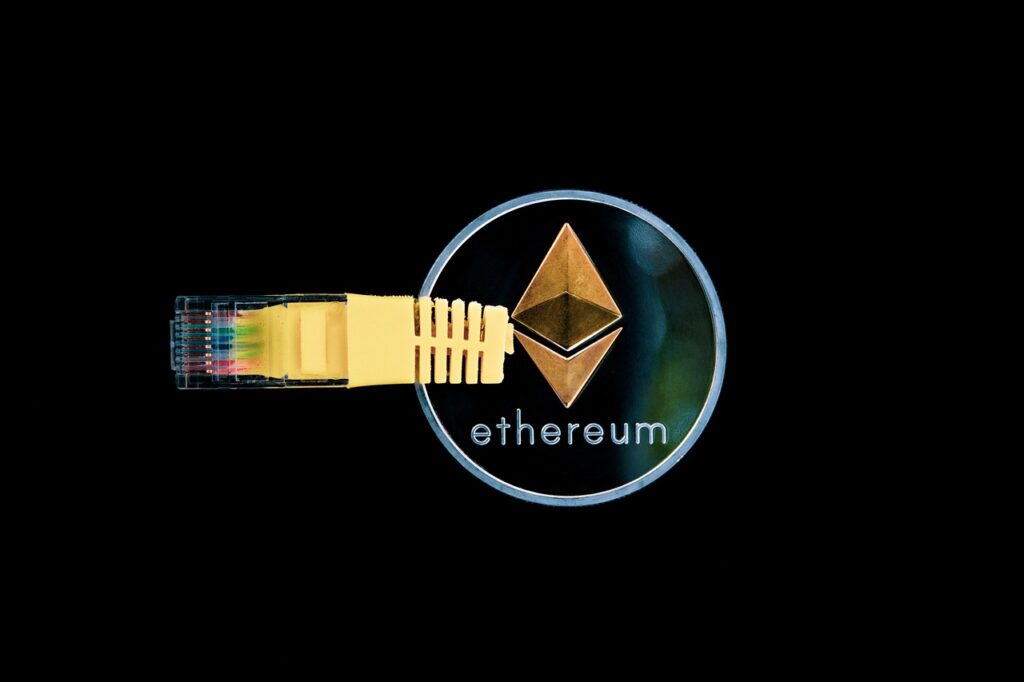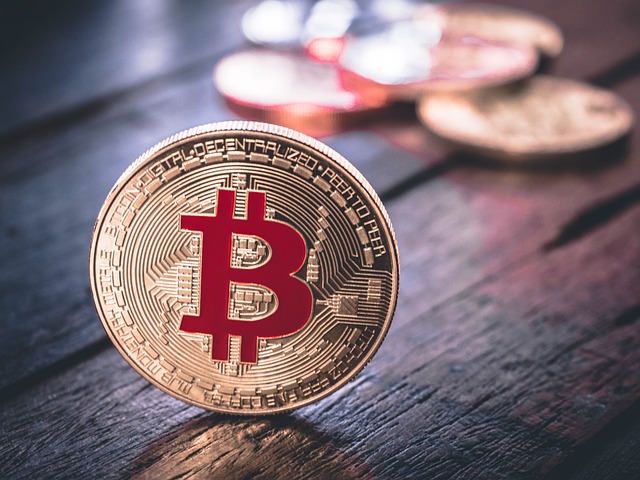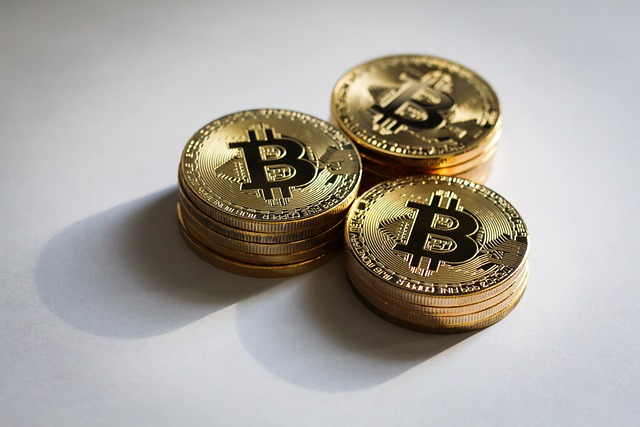Unlocking Financial Freedom: Your Guide to Decentralized Finance
Unlocking Financial Freedom: Your Guide to Decentralized Finance

Decentralized Finance Explained: Understanding the Basics
Decentralized finance, commonly referred to as DeFi, is a rapidly growing ecosystem that aims to revolutionize traditional finance systems.

This decentralized approach offers several key advantages over traditional banking systems. Firstly, it provides users with greater control and ownership over their financial assets. With DeFi, individuals can manage their funds directly, without relying on a centralized authority to handle transactions or make decisions on their behalf. Additionally, DeFi applications are often open-source, meaning the code is publicly accessible and auditable, promoting transparency and reducing the risk of fraud or manipulation.
The Advantages of Decentralized Finance over Traditional Banking
Decentralized finance (DeFi) offers numerous advantages over traditional banking systems. One key advantage is the ability for individuals to have complete control over their funds. Unlike traditional banks which often impose restrictions on withdrawals, DeFi allows users to freely access their funds at any time without limitations or approval from a centralized authority. This level of financial autonomy empowers individuals to make their own decisions regarding their money, without having to rely on intermediaries.
Another advantage of DeFi is the opportunity for global financial inclusion. Traditional banking systems can be exclusionary, with strict requirements that prevent many individuals from accessing basic financial services. In contrast, DeFi platforms are built on blockchain technology, which facilitates borderless transactions. This enables anyone with an internet connection to participate in the decentralized finance ecosystem, regardless of their location or socio-economic background. By providing equal opportunities for financial participation, DeFi has the potential to bridge existing gaps and foster greater financial equality worldwide.
• Individuals have complete control over their funds
• Freely access funds at any time without restrictions or approval from a centralized authority
• Empowers individuals to make their own decisions regarding their money
• No reliance on intermediaries
• Opportunity for global financial inclusion
• Traditional banking systems can be exclusionary with strict requirements
• DeFi platforms are built on blockchain technology, enabling borderless transactions
• Anyone with an internet connection can participate in the decentralized finance ecosystem
• Bridging existing gaps and fostering greater financial equality worldwide
Getting Started with Decentralized Finance: Setting up Your Wallet
So you’ve decided to dive into the world of decentralized finance (DeFi), and the first step is setting up your wallet. Don’t worry, it’s easier than you might think! A wallet is like a digital bank account that allows you to securely store, send, and receive cryptocurrencies. There are several types of wallets to choose from, including web-based wallets, mobile wallets, desktop wallets, and hardware wallets.
Web-based wallets are convenient and easy to use since they can be accessed through any internet browser. Popular options include MetaMask and MyEtherWallet. Mobile wallets, on the other hand, are perfect for those who prefer to manage their finances on the go. Trust Wallet and Coinbase Wallet are popular choices in this category. Desktop wallets, such as Exodus and Atomic Wallet, offer increased security as they are installed and run on your computer. Lastly, hardware wallets like Ledger and Trezor provide the highest level of security as they store your private keys offline on a physical device. The choice is yours, so pick the one that suits your needs and preferences.
Exploring the Different Types of Decentralized Finance Platforms
Decentralized finance (DeFi) has introduced a wide range of platforms that offer innovative solutions and opportunities to users. These platforms can be classified into different types based on their core functionalities and features. One type of DeFi platform is decentralized exchanges (DEXs), which allow users to trade cryptocurrencies directly without the need for intermediaries. DEXs offer benefits such as increased privacy, lower fees, and enhanced security compared to traditional centralized exchanges. Popular DEXs include Uniswap, SushiSwap, and PancakeSwap, each with its own unique features and user community.
Another type of DeFi platform is decentralized lending and borrowing protocols. These platforms enable users to lend their cryptocurrencies and earn interest or borrow crypto assets by using their existing holdings as collateral. Smart contracts govern these lending and borrowing processes, ensuring transparency and security. Examples of decentralized lending and borrowing platforms include Compound, Aave, and MakerDAO. These platforms have gained popularity due to their low barriers to entry, higher interest rates compared to traditional banks, and the ability to do so without relying on a centralized authority. Users can explore and choose from various protocols based on factors such as interest rates, available assets, and risk appetite.
Understanding Decentralized Lending and Borrowing in the Crypto Space
Decentralized lending and borrowing in the crypto space is one of the key features of decentralized finance (DeFi) that has gained significant traction in recent years. Unlike traditional banking systems, which rely on centralized authorities to facilitate lending and borrowing, DeFi offers a peer-to-peer network where individuals can lend and borrow cryptocurrencies without the need for intermediaries.
In this decentralized landscape, borrowers can obtain loans using their cryptocurrencies as collateral, while lenders can provide liquidity and earn interest on their holdings. Smart contracts, which are self-executing codes on the blockchain, play a crucial role in automating and ensuring the security of these lending and borrowing transactions. This innovative approach to lending and borrowing opens up a plethora of opportunities for individuals globally, providing access to capital and financial services that were previously limited or unavailable to them.
Earning Passive Income through Decentralized Finance: Staking and Yield Farming
There are various ways to earn passive income through decentralized finance, and two popular methods are staking and yield farming. Staking involves holding and validating cryptocurrency assets in a blockchain network.

Yield farming, on the other hand, involves utilizing decentralized finance platforms to lend out or borrow cryptocurrencies. By providing liquidity to these platforms, users can earn returns in the form of interest or additional tokens. This process requires individuals to lock up their assets for a certain period, during which they can earn rewards based on the platform’s specific protocols. Yield farming has gained popularity due to its potential for higher returns compared to traditional banking methods. However, it is important to note that both staking and yield farming come with their own risks and considerations that should be thoroughly understood before venturing into these activities.
The Risks and Security Considerations in Decentralized Finance
Decentralized finance (DeFi) has undoubtedly gained significant traction in recent years, offering users the ability to participate in financial activities without relying on traditional banking systems. However, it is important to be aware of the risks and security considerations that come with this emerging space. One of the primary risks in DeFi is the potential for smart contract vulnerabilities. Since DeFi platforms heavily rely on smart contracts to execute transactions, any bugs or flaws in the code could lead to severe financial losses for users. It is crucial to thoroughly research and audit the smart contracts before engaging with any DeFi platform to mitigate this risk.
Another risk to consider in DeFi is the presence of malicious actors in the space. As DeFi continues to attract significant amounts of capital, it becomes an attractive target for hackers and scammers. These malicious actors can exploit vulnerabilities in DeFi platforms, such as weak passwords or phishing attempts, to gain unauthorized access to users’ funds. Therefore, it is essential to adopt strong security measures, such as using hardware wallets and implementing multi-factor authentication, to protect your assets in the decentralized finance ecosystem. Being vigilant and cautious when interacting with DeFi platforms is crucial to safeguarding your investments and personal information.
Diving into Decentralized Exchanges: Trading without Intermediaries
Decentralized exchanges have gained significant popularity in the world of cryptocurrency trading. Unlike traditional exchanges, decentralized exchanges operate without intermediaries, allowing users to directly trade digital assets with one another. This peer-to-peer trading model eliminates the need for a central authority or middleman, providing users with a more transparent, secure, and efficient trading experience.
One of the key advantages of decentralized exchanges is the removal of custody risks. Traditional exchanges often require users to deposit their funds into the exchange’s wallets, making them vulnerable to hacking or theft. In contrast, decentralized exchanges enable users to retain control of their assets throughout the trading process. By using smart contracts and blockchain technology, decentralized exchanges facilitate secure transactions without compromising the security of users’ funds. Additionally, the absence of intermediaries eliminates the need for lengthy verification processes and allows for faster and more seamless trades.
The Future of Decentralized Finance: Innovations and Opportunities
Decentralized finance (DeFi) is a rapidly evolving space that holds immense potential for innovation and new opportunities. As we look to the future, several key developments are shaping the landscape of decentralized finance. One such innovation is the rise of decentralized autonomous organizations (DAOs). These are self-governing entities that operate on smart contracts, enabling individuals to participate in decision-making processes and contribute to the development of projects. DAOs have the potential to revolutionize traditional corporate structures by democratizing ownership and governance.
Another exciting development in the future of decentralized finance is the integration of real-world assets into blockchain networks. Traditionally, cryptocurrencies have primarily been used for digital transactions.

Embracing Decentralized Finance: Steps to Achieving Financial Freedom
Decentralized finance, also known as DeFi, has gained immense popularity in recent years as people seek alternatives to traditional financial systems. Embracing decentralized finance can bring you closer to achieving financial freedom, but it requires some essential steps. Firstly, you need to educate yourself about the various aspects of DeFi, such as decentralized lending and borrowing, staking, yield farming, and decentralized exchanges. Understanding these concepts will enable you to navigate the decentralized finance space confidently.
Once you have a good grasp of the basics, setting up a wallet is the next crucial step. Wallets store your digital assets securely, and there are several options available. From hardware wallets to software wallets and even web-based wallets, choose the one that suits your preferences and offers the necessary security features. After setting up your wallet, you can start exploring different types of decentralized finance platforms that align with your financial goals. Whether you want to lend or borrow funds, trade cryptocurrencies, or earn passive income, there is a platform out there that caters to your specific needs. By taking these initial steps and embracing decentralized finance, you open doors to a world of financial opportunities and pave the way for achieving true financial freedom.
What is decentralized finance?
Decentralized finance, also known as DeFi, refers to a financial system that operates on blockchain technology, allowing users to have full control over their financial transactions without the need for intermediaries like banks.
How does decentralized finance differ from traditional banking?
In decentralized finance, you are in control of your funds, and transactions are conducted directly between users without the involvement of banks or other intermediaries. This means lower fees, faster transactions, and greater accessibility.
How do I get started with decentralized finance?
To get started, you’ll need to set up a digital wallet that is compatible with decentralized finance platforms. This wallet will allow you to store, send, and receive cryptocurrencies.
What are the different types of decentralized finance platforms?
There are various types of decentralized finance platforms, including decentralized exchanges (DEXs), lending and borrowing platforms, and yield farming platforms. Each platform offers different services and opportunities for users.
How does decentralized lending and borrowing work in the crypto space?
Decentralized lending and borrowing platforms allow users to lend their cryptocurrencies to others in exchange for interest or borrow cryptocurrencies by providing collateral. These transactions are executed through smart contracts, ensuring transparency and security.
How can I earn passive income through decentralized finance?
Two popular ways to earn passive income in decentralized finance are staking and yield farming. Staking involves locking up your cryptocurrencies to support the network and earn rewards, while yield farming involves providing liquidity to decentralized platforms and earning interest or rewards.
What are the risks and security considerations in decentralized finance?
While decentralized finance offers numerous benefits, it’s important to be aware of the risks involved. These risks include smart contract vulnerabilities, hacking attacks, and market volatility. It’s crucial to do thorough research, choose reputable platforms, and employ security measures to mitigate these risks.
What are decentralized exchanges (DEXs)?
Decentralized exchanges allow users to trade cryptocurrencies directly with each other without the need for intermediaries. These exchanges operate on blockchain technology and offer increased privacy, security, and control over your assets.
What does the future hold for decentralized finance?
The future of decentralized finance looks promising, with ongoing innovations and opportunities. We can expect to see advancements in scalability, interoperability, and the integration of traditional financial services into the decentralized finance ecosystem.
How can embracing decentralized finance help me achieve financial freedom?
Embracing decentralized finance empowers individuals to take control of their finances, access a wider range of financial services, and potentially earn passive income. By eliminating intermediaries, reducing fees, and increasing accessibility, decentralized finance provides the opportunity for financial freedom.
Todays Featured Product:
Buy, exchange and grow your crypto securely with a Ledger hardware wallet, combined with the Ledger Live app. It’s never been easier to keep your crypto safe and accessible. Buy direct from Ledger.com and get todays Special Offers Here.




